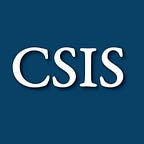16 Policies to Combat the Kremlin’s Playbook
The actions the EU and U.S. should take to counter Russian influence in Europe
2 min readOct 14, 2016
From “The Kremlin Playbook,” a report by Heather Conley, James Mina, Ruslan Stefanov, and Martin Vladmirov, published in full by CSIS/Rowman & Littlefield: cs.is/2eerldb
- Elevate and design a specific, high-level task force within the U.S. Treasury Department’s Office of Financial Crimes Enforcement Network (FinCen) that focuses solely on tracing and prosecuting illicit Russian-linked financial flows if they interact with the U.S. financial system.
- Encourage NATO and EU members to task their own financial intelligence units (FIUs) with developing dedicated units that track illicit Russian transactions.
- Prioritize enhanced EU-U.S. financial intelligence cooperation.
- Elevate anticorruption by strengthening institutions as an element of NATO’s Readiness Action Plan. Combating Russian influence should be a prioritized program under the new NATO-EU framework agreement.
- U.S. government assistance to Central and Eastern Europe and the Western Balkans must be completely revamped to prioritize combating Russian influence and strengthening governance.
- Under the direction of the U.S. State Department, issue an annual analysis of European states at the highest risk of Russian influence.
- Focus aid programs on maintaining and strengthening investigative journalism and independence of the media environment.
- Provide intelligence when appropriate and financial support to national anticorruption and auditing offices that enable independent investigations of complex and cross-border corruption cases.
- Increase support and efforts to strengthen the independence of the judiciary and prosecution offices to ensure that cases of corruption are swiftly and effectively addressed. Strengthen existing policies designed to provide public transparency of state-funded business transactions and to help countries develop them where they do not yet exist.
- EU institutions and its member states should substantially enhance anticorruption and development assistance mechanisms to help the most vulnerable countries build greater resilience to Russian influence.
- Enhance EU internal benchmarking and governance mechanisms, building on the EU’s anticorruption report.
- Introduce more rigorous benchmarking of rule of law and anticorruption efforts as conditions for pre-accession assistance for the Western Balkans and other accession countries, as planned for 2018.
- Earmark specific EU-wide and national funds for support of rule of law, anticorruption reforms, and independent journalism, centered on the most vulnerable countries.
- Enhance European Union oversight of EU development funds and require full disclosure of company ownership when meeting EU diversification requirements.
- National economic policymaking and regulatory governance, transparency, and independence must be strengthened in view of increasing market diversification and competition.
- National antitrust authorities should provide public biannual assessments of the diversification of strategic economic sectors.
